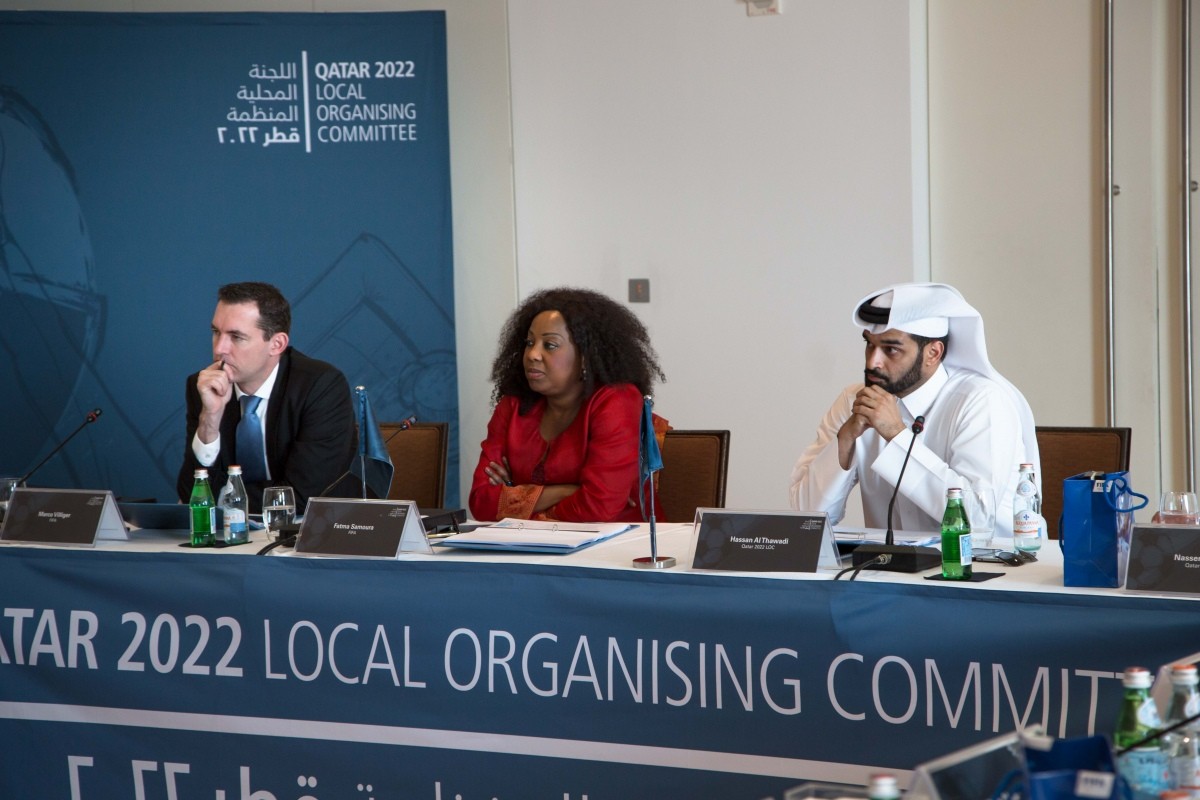.jpg)
_1-itok=GFMKQ6A9.jpg)
Ahead of the Qatar 2022 LOC Board Meeting in Doha this week, FIFA Secretary General Fatma Samoura led a FIFA delegation on a infrastructure tour which highlighted Qatar's rapidly advancing preparations for the 2022 FIFA World Cup™.
Speaking to www.sc.qa after the tour – which included five of the eight proposed host venues, a transportation network overview of the road network, Qatar Rail sites and Hamad International Airport – the Senegalese official said FIFA was pleased with the level of planning and enthusiasm shown by Qatar.
Q. What were your impressions on your first visit to Qatar, as you toured various sites with preparations for the 2022 FIFA World Cup™ in full swing?
A. This tour has opened the eyes not only for me in my capacity as FIFA Secretary General, but the new leadership team that is leading FIFA through the reforms. From the two-hour tour we've seen that the Qataris are on top of the issues. Construction is going on well, with a special focus on the safety and security of all the workers. We have also witnessed the compact nature of this World Cup, which will allow fans to attend several matches in the same day.
This gives another perspective to the way a FIFA World Cup is organised compared to Russia or South Africa or even Brazil. I think the level of commitment of the Supreme Committee for Delivery and Legacy, and the level of enthusiasm I have been witnessing since my arrival from the Local Organising Committee, just tells us that the choice of Qatar to host this World Cup was a good one, and it will be a well-attended World Cup.
Q. In the space of just two hours you were able to see five different stadium sites, as well as the Hamad International Airport; how unique do you think this compact tournament concept will be for visitors in 2022?
A. I was informed before I came about the possibility to visit almost all the venues and sites within a few hours, and I can confirm: yes, it is possible. I was wondering myself how the road infrastructure will be completed to support the mobility of the fans, so from the explanations we have received it seems that several ways will be utilised, including water ways. This will definitely make a big difference in the way the venues are set up, compared to other countries that have previously host the World Cup.
Q. How happy are you with the current stage of progress, with six years remaining until the kick-off in November 2022?
A. I can see that planning is done ahead of time, which is a strong sign of the commitment of the Qatari people of delivering the best World Cup ever.
Q. After the first edition of the tournament in Africa in 2010, what does it mean for FIFA to take the World Cup to a new region – the Middle East and the Arab world?
A. This only means that the world of football is opening to diversity and is really embracing the globalised nature of football. We should be giving more opportunities to regions like the Middle East to demonstrate that they can also be a nation of football, and also show the rest of the world that football is bringing people from different cultures and religious backgrounds together. This is for me the strongest sign that FIFA's new management can give to the rest of the world.
My mere presence as the first female and African Secretary General in world football's governing body already means a lot, but having the World Cup hosted by countries like Qatar with such a small population but such a great passion for football, means that we are not only focussing on the big nations.
This is what football is all about. International competition is two per cent of football, and grassroots football is 98 per cent. The only way we can help shape the future of FIFA is to develop grassroots football and have more nations coming into the competition. To me having the World Cup teams expanded to 40 or 48 is just another way to show to the world that we'd like to have more people, including women and younger people play football.
Q. Finally, with your own personal background working for 21 years with United Nations programmes, do you think this tournament can serve to unite people through football?
A. Hopefully with the three million tickets that we plan to sell in Qatar, there will be a big portion that will be bought by foreigners. This will give the rest of the world another perspective on how the World Cup is staged in other countries outside the main nations of football.

